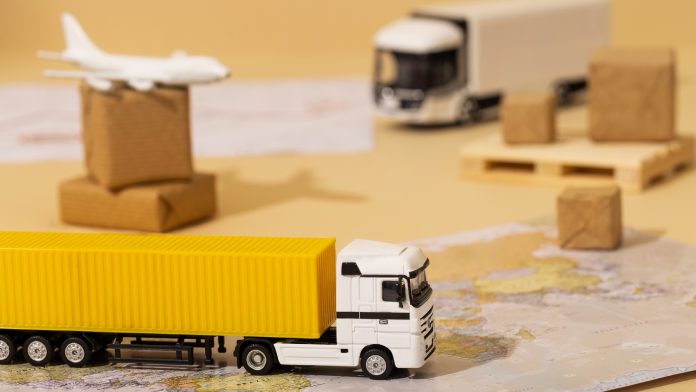Transportation Expenses: Essential Things To Know About It

The transportation expenses refer to the specific costs that an employee incurs while they travel for all business purposes. Most of the time, transportation expenses are a subset of travel expenses.
It includes costs associated with business travel, like taxi fares, fuel parking fees, meal tips, cleaning, shipping, and telephone charges. You need to know these facts while you calculate transportation costs for your business travel.
Some of the transportation expenses may be eligible for tax deduction. You should know this fact at your end. Ensure that you follow the correct process from your counterpart. It can form part of your marginal cost.
How Transportation Expenses Work?
The transportation expenses work in the perfect order while meeting your goals with ease. Some of the core factors that you should get through here are as follows:-
1. Mode Of Transportation
- Personal Vehicle: If you’re using your car, expenses include fuel, maintenance, insurance, and possibly tolls or parking fees.
- Public Transportation: This could involve costs for tickets, passes, or cards for buses, trains, subways, trams, etc.
- Ride-Sharing Services: Expenses for services like Uber or Lyft usually cover the distance traveled and can fluctuate based on demand and time of day.
2. Expenses Calculation For Transportation Expenses
- Fuel Costs: Calculated based on the distance traveled and the fuel efficiency of the vehicle. Try to make the expense calculation easier and effective for your business.
- Maintenance: This includes regular upkeep, like oil changes, tire rotations, and repairs necessary for the vehicle’s optimal functioning.
- Insurance: The cost of insurance for the vehicle can vary based on the coverage, your location, driving history, and the type of vehicle.
- Public Transportation: This can be calculated based on the cost of tickets or passes required for the intended travel period.
- Ride-sharing: Typically, this is calculated based on a combination of distance, time, and surge pricing (if applicable). Your distribution channel can be affected due to transportation expenses. Although you need to measure the transportation expenses with complete ease.
3. Budgeting & Tracking Of Transportation Expenses
- Record Keeping: Maintaining records of your transportation expenses can help in budgeting and also for tax purposes if some of these expenses are deductible.
- Budget Allocation: It’s essential to allocate a portion of your budget specifically for transportation expenses to ensure you’re not overspending. A digital marketing consultant can help your business to move forward in the correct direction. Despite the correct budget allocation sometimes things can turn worse for you in the long run.
4. Tax Consideration
- Deductibility: In some cases, transportation expenses might be tax-deductible, especially if they are related to business purposes. For example, if you use your personal vehicle for work-related travel, you may be able to deduct a portion of the expenses.
- IRS Guidelines: The IRS may have specific rules regarding what can be deducted and at what rate. It’s advisable to consult a tax professional for accurate information.
5. Evaluating Cost Effectiveness
- Comparing Options: Assessing different transportation options based on their costs, convenience, and efficiency. It can help in choosing the most cost-effective means of travel for your needs.
6. Variable Factors
- Location: Transportation costs can significantly differ based on where you live and the availability of different modes of transport.
- Frequency of Travel: More frequent travel typically means higher expenses, so optimizing routes or considering alternatives can help manage costs.
These are some of the core ways in which transportation expenses work. You must be accountable for all the processes that can make things easier for you in attaining your requirements with ease.
How To Calculate Transportation Expenses?
There are some effective ways to use transportation expenses. You need to be well aware of it while meeting your goals with ease. Some of the core factors that you need to be well aware of are as follows:-
There are some of the phases that often get calculated with time. You need to be well aware off this while meeting your needs with ease.
1. In Case Of Private Vehicle
Fuel Costs:
- Note the current fuel price per gallon/liter.
- Determine your vehicle’s fuel efficiency (miles per gallon or kilometers per liter).
- Calculate the distance traveled and divide it by your vehicle’s fuel efficiency to estimate fuel costs. The fuel cost forms an essential part of the calculation for your transportation process. You need to be well aware of it while achieving your goals with ease.
Maintenance:
- Keep records of maintenance expenses, such as oil changes, tire replacements, repairs, etc., over a specific period (monthly, annually).
- Divide the total maintenance expenses by the time period to get an average monthly or yearly maintenance cost.
Insurance:
- Check your insurance statements to find the total cost of insurance over a certain period (monthly or yearly).
- Divide the total insurance cost by the period to determine the average monthly or yearly insurance expense.
Other
- Expenses:Include toll fees, parking charges, and any other vehicle-related costs incurred during travel.
2. Public Transportation
Ticket/Passes Costs:
- Determine the cost of individual tickets or passes for your usual routes.
- Multiply the cost per trip by the number of trips taken in a given period (daily, weekly, monthly) to estimate expenses.
3. Ride Sharing Services
Calculating Costs:
- Ride-sharing services usually provide a breakdown of the cost (base fare, distance traveled, time taken, surge pricing, etc.). You need to submit the ride-sharing details to the company to get the conveyance for your travel.
- Review your ride history to calculate the average cost per ride over a specific period.
4. Business-Related Travel
Mileage Deduction:
- For business use of a personal vehicle, the IRS allows a deduction based on mileage. Keep a log of miles driven for business purposes.
- Multiply the business miles by the IRS-approved mileage rate to calculate the deductible amount.
You need to get through the absolute process that can make things easier for you to reach your objectives with ease. Try to follow the perfect process that can make things lucid for you to meet your goals with complete ease.
Final Take Away
Hence, if you want to get the maximum transportation expenses for your business travel. You must get through the complete details of it to make things work perfectly well in your favor. Try to develop a better solution that can make things easier for you to reach your goals with ease.
You can share your views and opinions in our comment box. It will help us to know your take on this matter. Try to chalk out the best solution that can make things easier for you to attain your requirements with ease.
Read More For More Business Related News:













